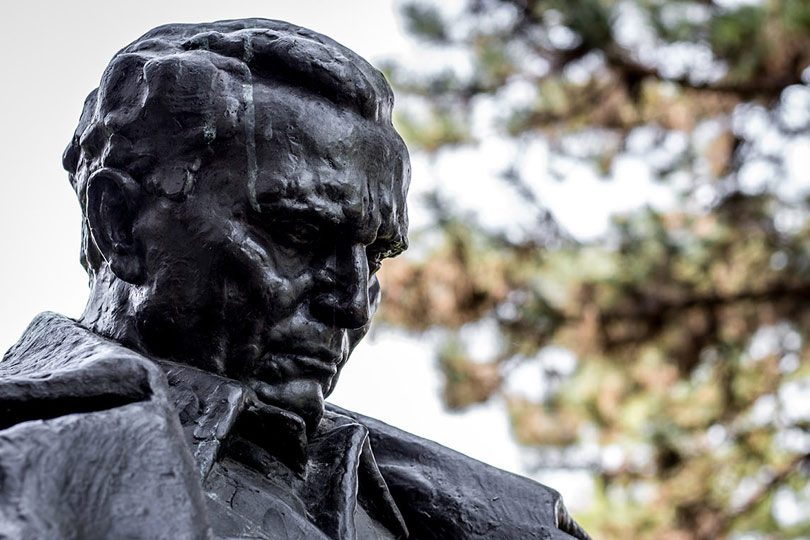It’s a rare thesis that cult of personality and cult of ideas can produce both positive and negative consequences for the functioning of a society and a state, as was the case of Josip Broz Tito.

dr Vladimir Pavicevic
Within political discussions one can often hear negative reflections on the cult of personality alongside affirmative reflections on the pronounced commitment of individuals or groups to an idea, assuming the idea is considered legitimate in a modern, democratic society. Illegitimate systems of ideas certainly include nazism, fascism, religious fundamentalism and all variants of totalitarianism, while for example conservativism, socialism, liberalism, and even nationalism are considered legitimate.
It’s a rare thesis that cult of personality and cult of ideas can produce both positive and negative consequences for the functioning of a society and a state. It’s also worth mentioning that a cult of personality is often accompanied by a cult of an idea. This was the case with Josip Broz Tito.
Josip Broz’s cult of personality was one of the foundations of socialist Yugoslavia. Tito’s word was equal in importance to the constitution, often even more important than the constitution, and any thought of full political pluralism in that system represented an attack on the personality of the president-for-life. In a community characterised by the absence of freedom and party monism, the cult of personality strengthened authoritarian rule, which is why it was often criticised as an undemocratic and autocratic order of non-freedom.
Still, a monument to Tito was unveiled in the Montenegrin capital, Podgorica, city center in December 2018 in the presence of the mayor of Podgorica and the
Minister of Defense. The message at the ceremony was that the legacy of Josip Broz in post-communist Montenegro should also be interpreted as emancipatory.
This affirmative interpretation of Tito’s political figure and Montenegro’s communist period came from the city administration and one of the members of Government of post-communist Montenegro, which is a member of NATO and which has defined membership in the European Union as its key political goal. This can serve as a good practical example in support of plural interpretations of the effects of the cult of personality and the cult of ideas, and their development within a community.
It’s particularly interesting to look at the cult of personality within systems which have been shaped according to democratic values. While this may seem like an inconceivable setting to some, it is actually viable.
The development of the Federal Republic of Germany in the last 40 years can be taken as an example. During this period only three people were elected chancellors in Germany. So, since 1982, the heads of state have been Helmut Kohl, Gerhard Schröder and Angela Merkel. Unlike Schröder, who was chancellor for two terms, both Kohl and Merkel served as chancellors of Germany for four terms, which means a full sixteen years. The development of the cult of personality is connected to both.
Köhl remains remembered as the unifier of Germany, as it was during his mandate that West Germany united with the former East Germany. From 1982 until 1998, he was an absolutely crucial political figure in German politics.
It is a similar story with Merkel, although at first glance few would link her to the idea of building a strong political figure. Based on all relevant criteria she truly did become one, as evidenced by the nickname ‘Mama’, which many German citizens call her. Concerns about how her successor will fill her shoes only confirm how much of a personality cult has been built around Chancellor Merkel.
Dr Vladimir Pavicevic, politicologist and politician, director of the non-governmental organisation Society for Research of Politics and Political Theory based in Bar, Montenegro



Leave A Comment